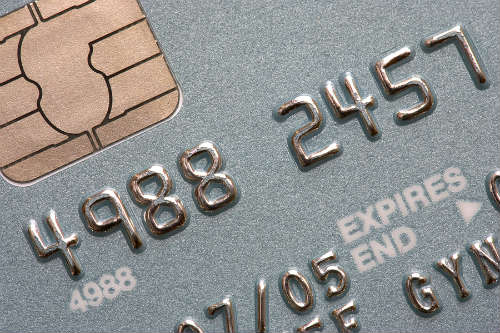Q: My wife had a premie baby almost 6 years ago and couldn’t work for two years. Even though I worked two, and sometimes three jobs, we got behind on our bills and now have a lot of stuff on our credit, like charge offs and hospital bills. If we got a few secured cards and pay them faithfully will that help our credit scores? My credit scores are about 490 to 510 right now.
A: I would not open a “few” secured credit cards, however, obtaining a single secured card and making on-time payments can definitely help you boost your credit scores.
Paying consistently on a secured card will establish some positive payment history for you, which will help counter-balance (to a degree) some of the negative data that is currently in your credit files.
Opening several cards will result in multiple inquiries and could further lower your credit scores. Before opening a secured credit card, just make sure the bank that issues the card does, in fact, report to the credit bureaus.
Other Credit-Boosting Steps
To get an even bigger boost to your credit rating, you should try to clean up some of the blemishes in your TransUnion, Equifax and Experian credit reports.
If you can contact your previous creditors and offer then a small lump sum payment to settle your debts, in exchange for them removing the negative information on your credit reports, then that will enhance your credit rating.
Only do this for recently delinquent accounts (i.e. those from the last two years). Also, only give up cash payments to those creditors who agree, in writing, to delete black marks from your credit. If they simply note the account as “Paid” but leave the old, negative information there, that won’t help your credit.
Improve Your Credit Without Taking On New Debt
You also mentioned that your car note is currently in good standing. That’s great, because at least you have one “traditional” form of credit in your credit file.
A car loan is an “installment loan,” and the fact that you’re paying it on time is viewed positively in the credit scoring world. The other two forms of debt that get analyzed, from a credit scoring standpoint, are “revolving debt” (which is credit cards), and mortgage loans.
The fact that you rent, and don’t own a home, doesn’t mean you can’t establish a good payment track record with those rental payments.
Try using a service like Payment Reporting Builds Credit. Their website is http://www.PRBC.com. It allows you to document “non-traditional” forms of credit, like rental payments, child care costs, utilities – anything where you’re making regular monthly payments.
The information gets tracked by PRBC and helps you build your credit history and show a potential lender or creditor that you’ve been paying various bills on time.
Pay Down Credit Cards and Pay Everything On Time
Also, just make it a priority to pay all your bills in a timely fashion. That’s the biggest factor in calculating your credit score.
Lastly, if you do already have any standard credit cards (i.e. not secured cards), try to pay down those balances. A good target is to keep your credit card balances at 25% or less of your available credit, if possible. That too will increase your credit rating.










